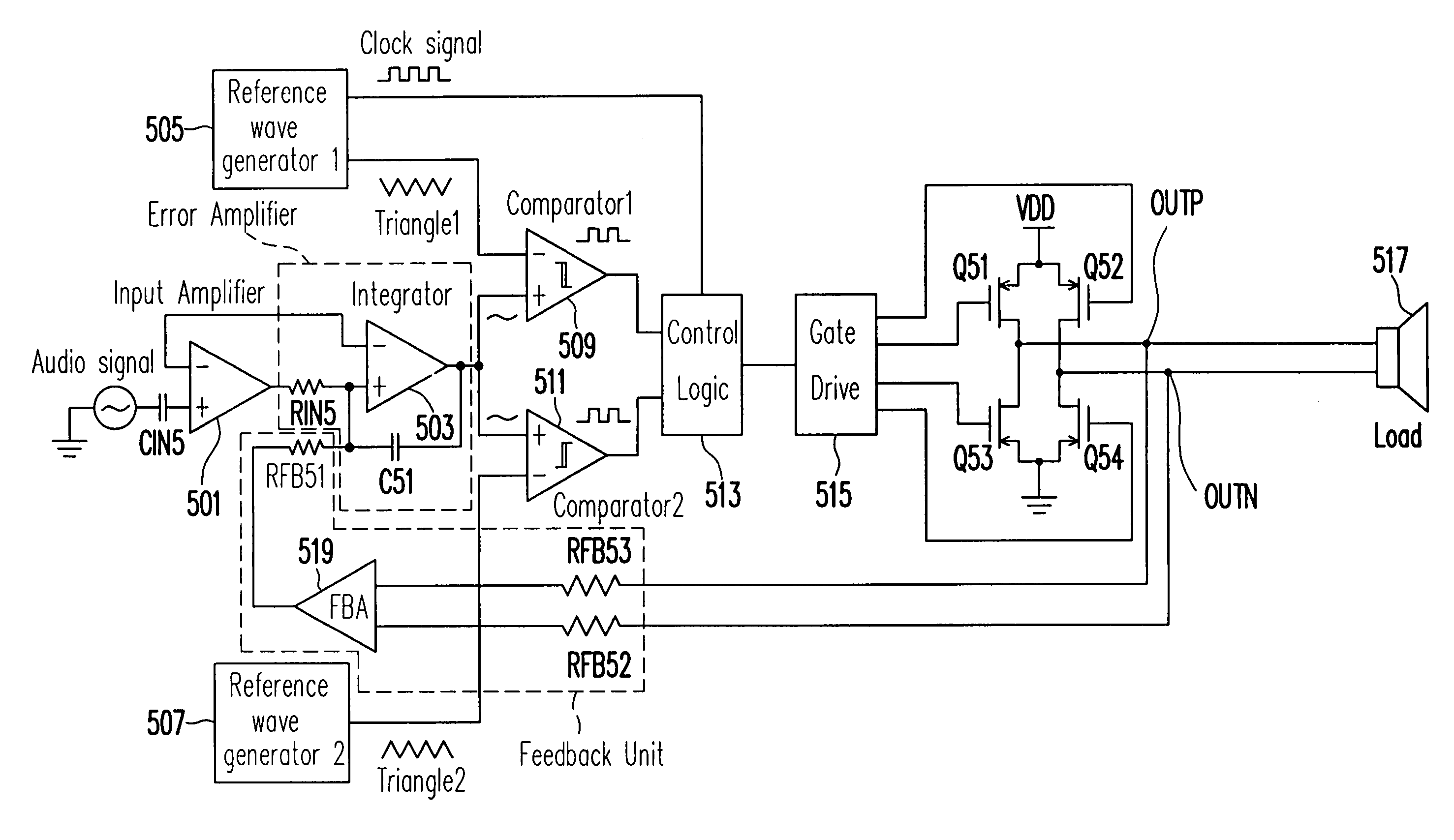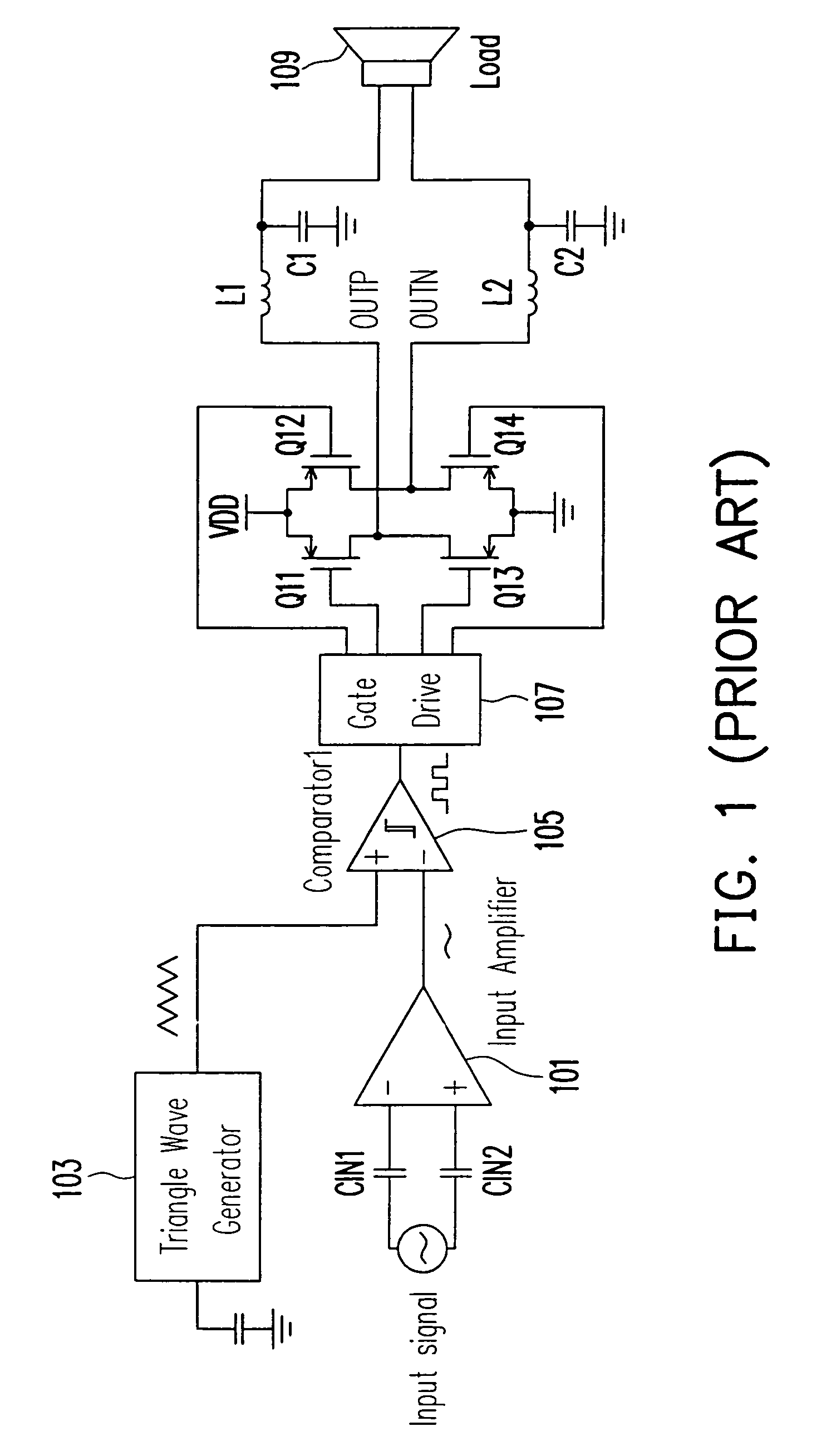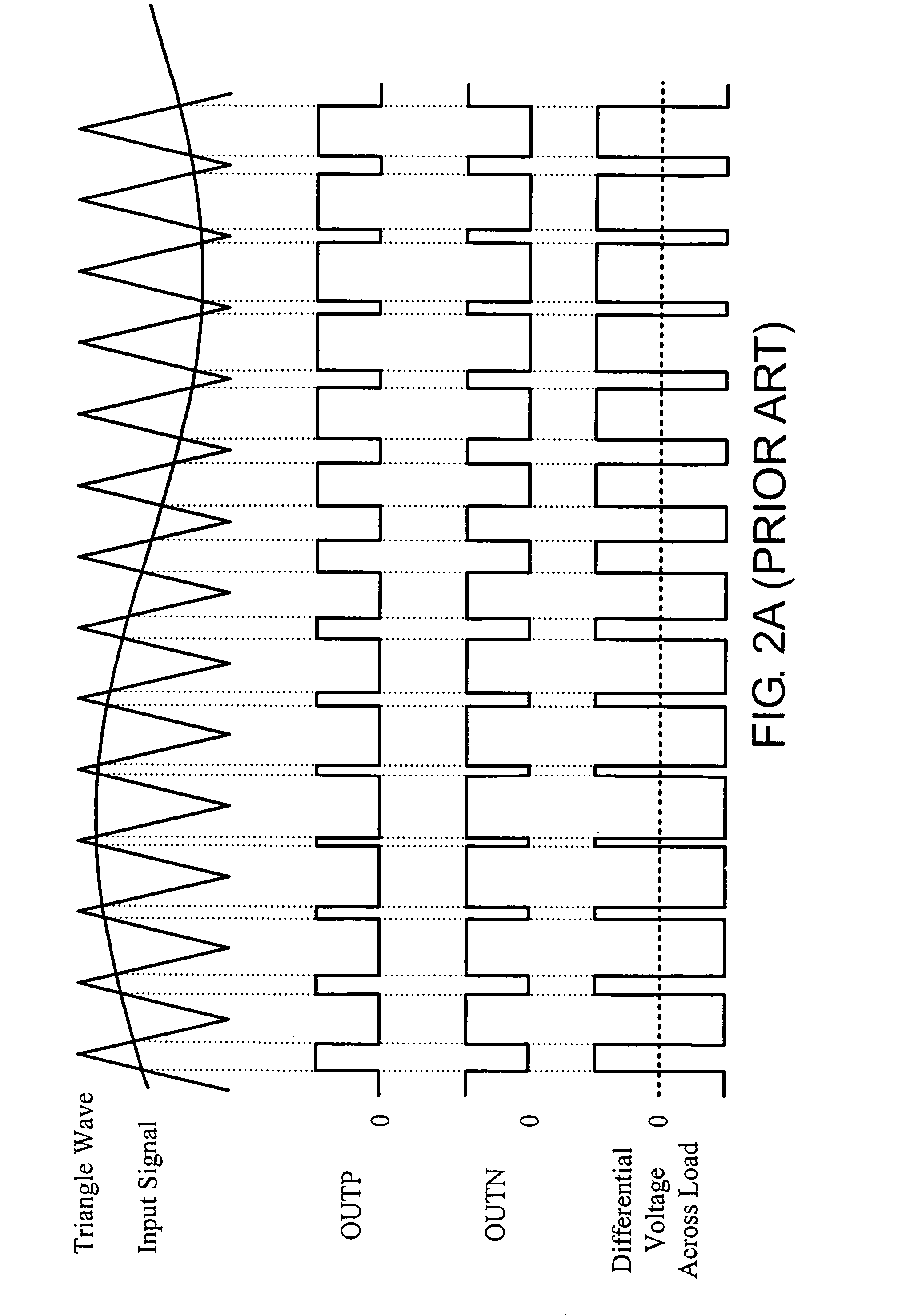Filterless class D power amplifier
a filterless, power amplifier technology, applied in dc amplifiers, amplifiers, dc amplifiers with modulators/demodulators, etc., can solve the problems of increasing size and solution costs, increasing power consumption, and the kind of modulation scheme still has a problem relying on common mode voltage variation, so as to reduce common mode noise
- Summary
- Abstract
- Description
- Claims
- Application Information
AI Technical Summary
Benefits of technology
Problems solved by technology
Method used
Image
Examples
Embodiment Construction
[0030]Reference will now be made in detail to the present embodiments of the invention, examples of which are illustrated in the accompanying drawings. Wherever possible, the same reference numbers are used in the drawings and the description to refer to the same or like parts.
[0031]One embodiment of the present invention provides a modulation scheme for filterless switching amplifiers with reduced EMI. The double triangular waves reduce the common mode voltage of the output signal via the two triangle waves and a control logic block added between the output of comparators and the switching unit.
[0032]FIG. 5 illustrates a diagram of a filterless class D audio power amplifier for EMI reduction according to an embodiment of the present invention. An input audio signal is input into a negative input of an input amplifier 501 via a capacitor CIN5. Input amplifier 501 pre-amplifies the input audio signal. Input amplifier 501 further has a positive input coupled to a positive input of an ...
PUM
 Login to View More
Login to View More Abstract
Description
Claims
Application Information
 Login to View More
Login to View More - R&D
- Intellectual Property
- Life Sciences
- Materials
- Tech Scout
- Unparalleled Data Quality
- Higher Quality Content
- 60% Fewer Hallucinations
Browse by: Latest US Patents, China's latest patents, Technical Efficacy Thesaurus, Application Domain, Technology Topic, Popular Technical Reports.
© 2025 PatSnap. All rights reserved.Legal|Privacy policy|Modern Slavery Act Transparency Statement|Sitemap|About US| Contact US: help@patsnap.com



